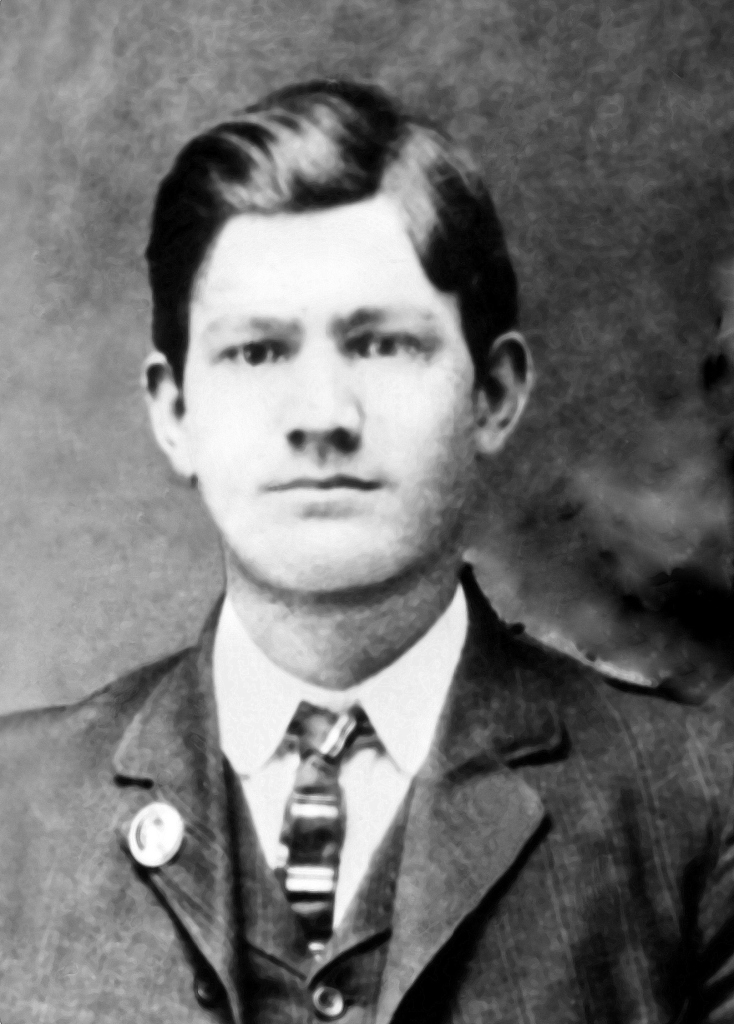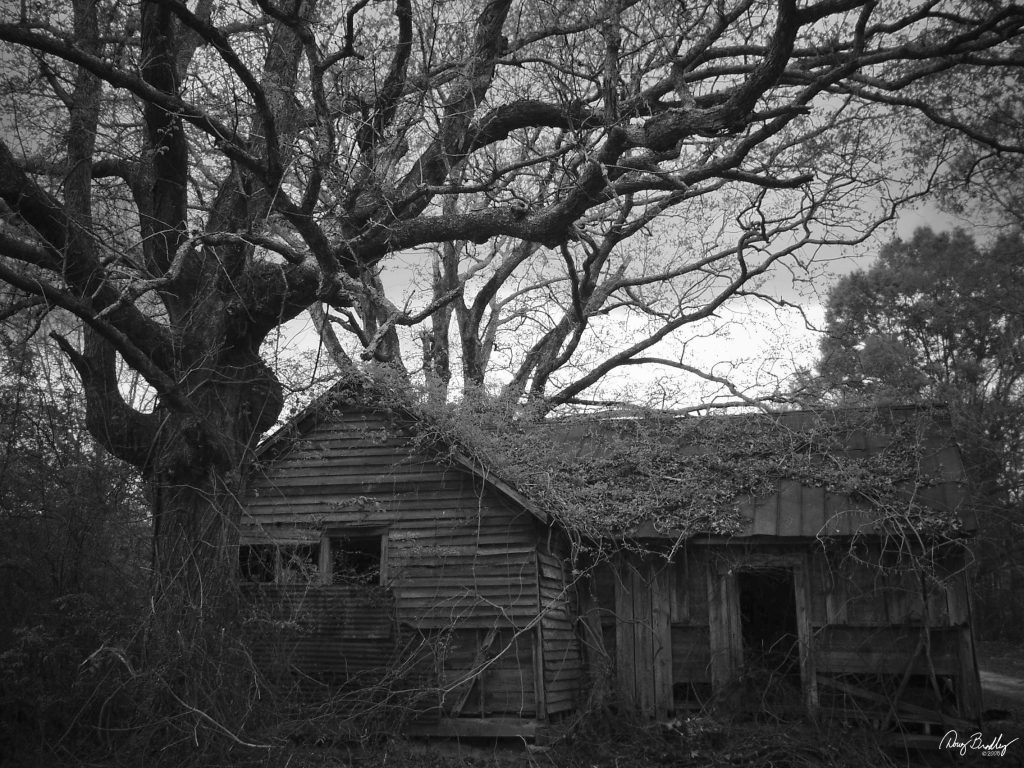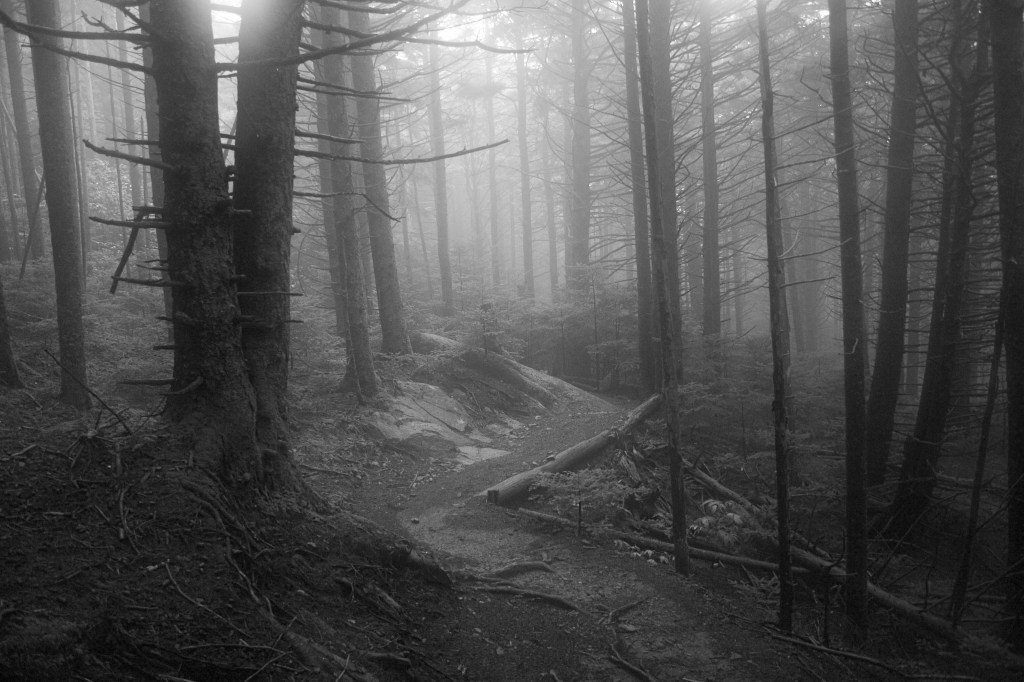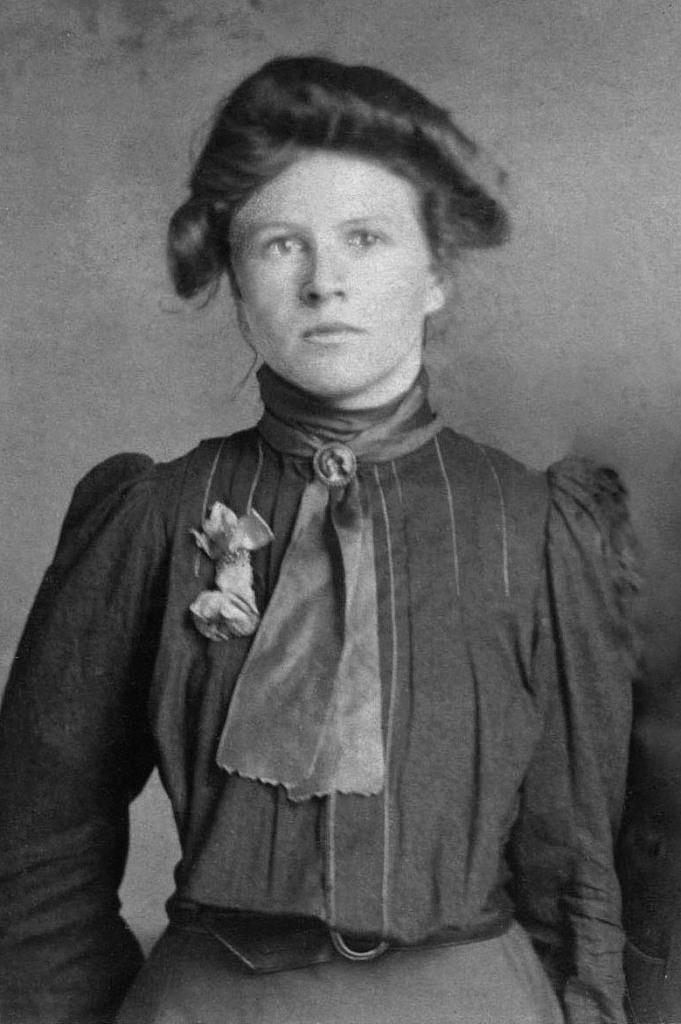Thomas Austin Merica was a handsome man with a gentle wit.
He had thick auburn hair, a symmetrical oval face, prominent brows, a good straight gaze, finely proportioned nose, slightly bowed lips, straight but relaxed shoulders, and the look of a man who could set his mind to something.
I can see all that from his photo, except the part about his gentle wit. I know that from his daughter, who tells me things he did and said.
Something else I can’t see from the photo. That he and his siblings were abandoned as children.
Tom was four or five years old when his parents announced one day that they were heading off to look for work. It would have been 1888 or ’89. They said they would send for the children once they found something and settled down.
That was the last anyone ever heard from them.
Tom was the youngest. His sister Maggie was seven and Hunter was ten. William would have been 17, and Tom’s oldest brother, Joseph Calvin, was 22 years old and soon to be married.
I might have the ages wrong. Details are sketchy. My family says Tom was a child of four or five when his parents left, but he might have been younger. Or older.
They waited for a week, going about their work and play, the older children helping the younger to dress and clean themselves, put together meals and get to bed.
They talked excitedly, wondering where their parents would settle, dreaming of exotic places like they might have read about in school books, telling their friends that they were going to move, maybe to a city, or a far away state.
Then they waited for a month, eating through what stores of food they had. No more milk. But there was surely flour, maybe some bacon or salt pork. And maybe Tom’s mother, Elizabeth Turner Merica, had put away beans, corn, or tomatoes. Potatoes and turnips in a bin. And surely there were chickens and eggs. Surely.
Then they waited for another month, and their clothes were dirty, ragged. Their cheeks were hollowing, and they were quiet. They didn’t wonder out loud anymore where their parents would settle. They dared not say what they thought. They slept in their britches, maybe lost one of their shoes, their only pair, running like wild boys through the woods.
I am, of course, speculating. We don’t know the facts, and I imagine no one alive does. But of this next event I am certain. It was winter. And Tom had no shoes.
A kindly neighbor saw him walking through the snow barefoot and took the boy up, wondering what to do with him. A young boy shouldn’t be out walking through the snow with no shoes.
Now that I look again at the photo of Tom as a young man, I do see something in his eyes.
There’s that determination I mentioned. But there is also a yearning. Maybe it is a yearning that could never be fulfilled, a yearning for his mother, or maybe just to know the truth of what happened to his parents.
Who we are is determined in large part by who our parents are. As children we absorb their beliefs, their preferences, even the cadence of their speaking. These things attach themselves to our native characteristics without any effort on our part.
Then often, sometime in mid-childhood, we begin a conscious process of shedding ourselves of our parents’ traits. We replace them with impressions we gather from our school friends, our heroes, even pets play a part in development of a child’s character. Some of who our parents are stays, but influences bombard us from every direction, and once we reach adulthood we are a roadmap of everything we have seen and experienced, every place we have been.
What happens if some part of that is missing? The proverbial child raised by wolves is devoid of all human culture, while Rudyard Kipling’s feral child Mowgli is “humanized” by animals with human traits. Those are extremes.
But what happens when parents are there during a child’s most formative years, till four or five, and then they suddenly vanish? Who does that child become?
Society has a way of closing in around parentless children, of finding them homes, or at least roofs and civilizing forces. Replacing a missing parent, though, is not as easy as a roof and a new family.
I saw an 1850 census report showing Joseph W. Merica, Tom’s missing father, as a boy of 13 in his father’s home. Then an 1860 census report listing a 24-year old Joseph W. with his brand new 16-year old wife, Elizabeth. They even stuck around for the 1880 census, and by now had three children, spread by five and seven years.
But then, no more. They simply disappeared.
I have looked at the census reports, death reports, and newspapers of places they might likely have gone. Kansas, because there were Mericas there. Ohio and Pennsylvania, because people from the Blue Ridge often went there for work.
I’ve even thought of looking in South Africa, Canada and Chile, too. Why? Because those places lured plenty of Americans with the promise of riches. The largest gold rush in the world began in 1886 in South Africa. News whipped up a fever of excitement and prospectors flooded in from around the world.
About the same time, gold was discovered in British Columbia and Tierra del Fuego. Untold numbers would die getting there and searching for the yellow metal.
If Joseph W. and Elizabeth Merica were among them, we’ll never know. Those bodies would have been left where they fell, maybe buried by a passing Christian.
I’ve been told that Tom’s oldest brother found homes for the children. They were separated, each to a different home, but all within the same community, and so they remained close all their lives.
Legend has it that a Catholic family took Tom in. There were few Catholics in Page County then, but I have no reason to doubt the story. It only takes one good family to change a young boy’s life.
Legend says too that the family was fairly well to do, with a big house on a hill, plenty of pasture for horses, and enough help to afford Tom the luxury of attending school.
He was lucky, or as lucky as an abandoned boy can get.
Some abandoned children cannot ever again form deep attachment to another person. The fear, the sense of unworthiness is just too great. But Tom must have had incredible internal fortitude, as must his brothers and sister. They all grew up strong, had families, had seemingly happy and relatively prosperous lives.
Maybe they were all lucky to have found loving families that worked to heal the children’s pain. Maybe they clung to each other and gathered strength from that bond. We’ll never know.
But this I know: Tom lived with caring people who gave him a home, an education, and whatever tools he needed to move into the world and start a family of his own.
He got married at 22, to Florence Elizabeth Collier, the prettiest girl he ever saw, he said. Years later he would tell his beautiful teenage daughters, Ruth and Annie, that neither one was as pretty as their mother. Far from being hurt, the girls were delighted at what he said.
One evening when Ruth was getting ready for a date, she heard her father say to her mother, “They go somewhere and park.” Florence answered, “We were young once.”
Photos, except of Tom and Florence Merica, courtesy of the amazing photographer, Doug Bradley, https://www.flickr.com/photos/dougandbecky/with/2126448446/

Beautifully written!
Thanks, Cathy!
Your writing impressed me so much that I nominated you for the One Lovely Blog Award. Congratulations!
How wonderful! I’m thrilled. Thank you Cathy!!
You’re welcome!
I read once that the best gift a man can give his children is to love their mother. It sounds like that is what Thomas did. The haunting photos you selected compliment this story and your skillful writing.
Thanks, Wendy